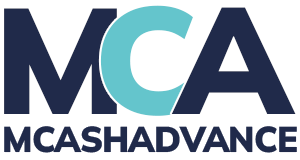
If you’re running a startup, you already know how hard it is to get funding. Most banks won’t lend to new businesses. They want years of financials, strong credit, and assets to secure the loan.
But that doesn’t mean you’re out of options.
One alternative worth considering is a Merchant Cash Advance (MCA). It’s fast, flexible, and doesn’t require perfect credit or collateral. In this article, we’ll explain how MCAs work for startups, what you need to qualify, and how to use one without getting into trouble.
Let’s take a closer look.
How MCAs Work for Startups
An MCA is not a loan. It is a cash advance based on your startup’s future credit card sales or total business revenue. We give you a lump sum up front, and you repay it through a fixed percentage of your daily sales until the full amount plus a set fee is repaid.
This fee is called a factor rate. It is not an interest rate. That means you repay a fixed total, even if you pay it back faster.
Learn more: MCA Rates and Fees
The repayment happens automatically. Each day, a percentage of your sales is deducted until the MCA is fully paid. If you have slower days, your payments are smaller. On busier days, they go up.
That is why many startups use MCAs to bridge gaps in cash flow or fund short-term needs.
What a Startup Needs to Qualify
Not every startup can get MCA funding. Most MCA providers, including us, require a few key things:
- At least six months in business
- At least $8,000 per month in credit card sales
- A U.S.-based business bank account
- A minimum personal credit score of 550
Full list here: MCA Qualification Requirements
If your startup meets these criteria, you may be eligible. We’ve worked with restaurants, ecommerce shops, salons, and retail startups that had steady card sales but no luck with traditional loans.
If you don’t meet these requirements yet, it may be better to wait or consider alternative funding like grants or early-stage venture capital.
See options: Alternatives to an MCA
When an MCA Makes Sense for a Startup
MCAs are not for every startup, but they do work well in a few situations:
- You are bootstrapping and do not want to give up equity
- You have seasonal sales and need inventory upfront
- You need fast capital between funding rounds
- You want to launch a marketing campaign quickly
- You process a lot of credit card sales each month
These are common use cases we see. MCA funds can be used for anything your business needs, whether it is rent, hiring, marketing, or equipment.
Explore more: 20 Benefits of an MCA
What to Watch Out for in Startup Mode
MCAs are fast and flexible, but they come with risks, especially if you are still early in your business journey.
Here is what we want every startup to understand:
- Repayments are daily, not monthly. This can hurt your cash flow
- MCAs do not build credit with business credit bureaus
- Some providers require a personal guarantee. This means you are personally responsible if your business cannot repay
Learn more: MCA Personal Guarantees - If you miss payments, some agreements allow legal action without a trial. This is called a confession of judgment
Details here: MCA Agreements - Taking more than one MCA at once is called stacking, and it is risky
Read: Drawbacks of an MCA
We are transparent about these tradeoffs because we want startups to succeed, not struggle.
How to Apply for an MCA as a Startup
If you qualify and decide an MCA fits your needs, the application process is fast.
We usually ask for:
- Three months of bank or merchant statements
- Basic business details
- A quick review of your credit card revenue
There is no long paperwork, and in many cases, we can pre-approve you in minutes.
See what is involved: How to Apply for an MCA
Before applying, you should also ask the provider:
- Do you fund businesses in my industry
- Will you require a personal guarantee
- What is the total repayment amount, and is there a penalty for early repayment
These questions help you spot red flags and find a provider that is willing to work with startups.
How to Manage Repayments as a Startup
Once you are funded, keep a close eye on your cash flow. Since repayments are daily, we recommend:
- Keeping a buffer in your account
- Monitoring sales to avoid surprises
- Letting us know early if revenue slows down
If your startup hits a rough patch, we may be able to adjust your schedule or help you refinance.
Guide: Refinancing an MCA
Or: How to Repay an MCA
We want your funding to help you grow, not hold you back.
Securing an MCA is not only possible for established businesses but also for startups and new ventures. The key is to meet the basic eligibility criteria, which typically include being in business for at least six months and generating a minimum of $8,000 in monthly credit card sales.
However, it is not just about ticking off these boxes. To increase your chances of approval, you should contact any MCA provider you intend to apply to and ask if they fund many startups in your industry. Focusing only on providers who express early interest will improve your chances of securing funding.

